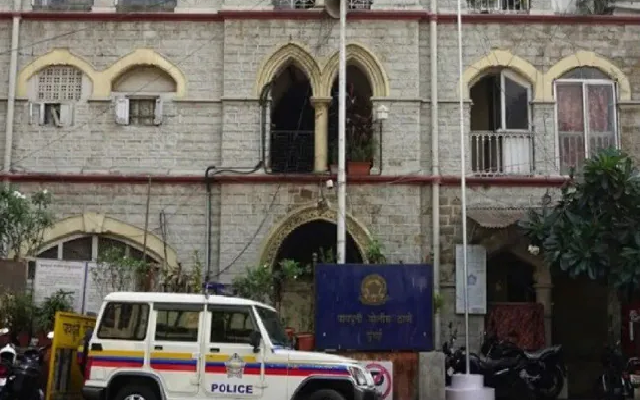I really liked Dubai. Which is why I’m so worried by the path its government has chosen. No, I’m not predicting another financial crash, or even pointing out a looming environmental catastrophe. I’m worried Dubai will destroy itself. A city heavily dependent on foreign capital and labor, Dubai thrives because of the safety and security it provides—in marked contrast to the region around it. Dubai as we know it would likely be unable to survive even a single serious terrorist attack.

So why pursue a foreign policy almost guaranteed to provoke one?
Hello, Tomorrow!
I moved to Dubai during a rough time in my life. I used my savings to buy a transatlantic plane ticket and rented a cocaine-white Toyota Camry. It turned out Dubai was just what I needed: palm trees, gorgeous beaches, highways as big as airport runways; speed limits that were, on certain stretches, more like suggestions. I flew over the pavement, pretending lane markers were racing stripes. It was a shot of energy at a time when I had almost none. Dubai appears to run on ambition.
Next to Dubai International, after all, New York’s LaGuardia Airport looks like an archaeology dig that ran out of funding. In the time it’s taken New York to build one new subway station, Dubai practically brought the world of The Jetsons to life. I told friends that Dubai was a bigot’s and a socialist’s worst nightmare come true. Capitalism won, and it’s subtitled in Arabic. In twenty years, Dubai has become a Big Apple for the developing world, all the fierceness and ugliness of a sand-swept Wild West out East.
People from all corners of the world arrive in Dubai to make their dreams come true. Much of Dubai, as a result, isn’t from Dubai. Many, nearly a majority, are lower class migrant workers from South Asia, and the record of their treatment should shock and shame. But many South Asian Dubaiians—the demonym is my own—are also wealthy, and alongside monied Germans, Iranians, Azerbaijanis, and anyone else you can imagine, eagerly buy up property, parade fancy cars, book heavenly hotels and spend more on meals than many of us (me) earn in a week.
It’s a kind of Oriental Switzerland as war rages all around it. The Emirates’ largest city is betwixt three nuclear powers (Israel, India and Pakistan), none of whom are on the friendliest terms. It’s in the middle of Iran and Saudi Arabia, who kind of sort of hate each other’s guts. Then there’s Yemen, which is a war zone. Iraq’s not too far away, and neither is the Gaza Strip. Plus there’s Syria, Kurdistan, Egypt, Sudan, Somalia. Dubai isn’t just bordering the world’s most unstable regions—it’s surrounded by them. And yet somehow Dubai has convinced elite vacationers and expats that it’s one of the safest places to park not only their money, but their families.
To pull this off requires dexterity, subtlety—and neutrality.
Which is why Emirati foreign policy is such a mystery. The UAE seems to be doing everything it can to put Dubai at risk. Alongside Saudi Arabia, they’ve intervened militarily (and financially) against democracyin Egypt and Bahrain; UAE forces are currently pummeling Yemen and Libya; they’re also funneling serious dollars to dictators, and doing whatever they can to kill populist government. They’re backing the same Egyptian government that puts the squeeze on the Gaza Strip.
They pursue and support the same policies Shadi Hamid, a senior fellow at the Brookings Institution, has argued will strengthen ISIL—a terrorist movement which brutallyexploits tensions within societies hoping to weaken them. ISIL attacks Shia mosques in Saudi Arabia, and Kurdish rallies in Turkey, trying to convey strength through its reach. If these countries are vulnerable to this kind of violence, though, the UAE is even more so.
But it’s not just ISIL that Dubai should fear. Dubai has made enemies across the region, many of whom might try to retaliate, and all of whom understand how devastating such retaliation would be. Dubai is unusually dependent not just on foreign capital, but foreigners themselves. Most Dubaiians are just long-term visitors. The reason the world’s elite vacation in seven star hotels in Dubai is because they’re convinced Dubai is not really in the Middle East.
It won’t take much to make that bubble burst. At the first sign of trouble wealthy foreigners and investors will pack up and leave, the ones with vast sums of money and motherlands and fatherlands to go back to. They’ll fly out of airports in an exodus so huge that those A380s will seem to have been purchased only for this precise moment. When they go, the huge numbers of migrant workers will have no reason to stay, either. Little will be left except the enormous skyscrapers of impossible luxury, emptied and abandoned, the finest sarcophagi this side of ancient Egypt.
This is not something I wish to see happen. But it’s hard to see how it won’t, eventually. Dubai could have chosen to remain a secure Switzerland for the Middle East, refusing to get involved in regional conflagrations and emphasizing a welcome approach to all. This wouldn’t just have been good for business, but critical for the city’s existence: Few places in the region have escaped the scourge of terrorism, and fewer still are less able to deal with the consequences.
















